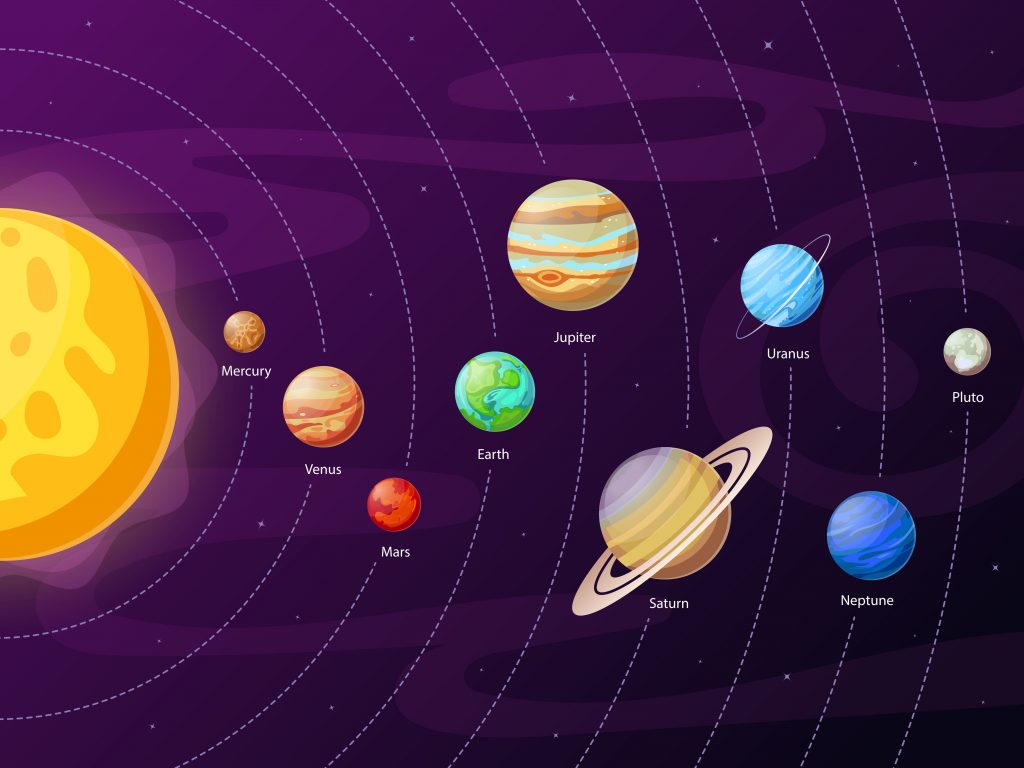
Ancient astronomers were often astrologists, keeping detailed records of celestial bodies’ movements. They used this data to determine when to plant and harvest crops. At the same time, it guided them in making decisions, planning public festivals, or even hosting weddings. They relied on planets and stars visible in our heavens. Yet Pluto, a recently discovered celestial object, has taken on new astrological significance.
Its Characteristics, Discovery, and Status
Pluto is currently classified as a dwarf planet and a Kuiper Belt object. NASA explains that it lies around 3.6 million miles away from the sun and takes 248 Earth years to complete its orbit. One day on Pluto lasts 153 hours, the equivalent to 6.375 Earth days. With a diameter of 1,400 miles, it’s only two-thirds the size of our moon. Even so, Pluto has five moons orbiting it and a thin bluish atmosphere of nitrogen, methane, and carbon monoxide. Surface temperatures average around minus 380 degrees Fahrenheit, making it far too cold to support life.
Pluto was not known to our ancient ancestors. During the late 1800s, astronomers searched for a mysterious object beyond Pluto. Boston resident Percival Lowell built an observatory in Arizona to help in these efforts. Space.com writer Nola Taylor Redd discusses how Lowell Observatory played a part in Pluto’s discovery. Amateur astronomer Clyde Tombaugh searched for “Planet X” with the observatory’s tools and his own instruments. He found the elusive celestial body on February 18, 1930, and it was named for the Roman deity of the underworld.
Phys.org reveals that the International Astronomical Union declassified Pluto as a planet in 2006. The IAU based its decision on requirements that an object should be the largest gravitational force in its orbit. The IAU’s definition and Pluto’s classification are still debated today. Some point to Pluto’s multilayer atmosphere, organic compounds, and multiple moons as evidence that it is a planet.
To Most Astrologers, Pluto’s Still a Planet
Meanwhile, the astrology community tracks Pluto’s movements. Practitioners also credit the planet with possessing certain types of energies. AstroStyle calls these effects “intense,” adding that the planet is associated with transformation. It’s also thought to govern unconsciousness, wealth, death, power, and sexuality. In modern astrology, Pluto rules both Scorpio and the eighth zodiac house. That’s no surprise, given Scorpio’s mysterious and passionate reputation and the eighth house’s domain of regeneration, death, sex, and money matters.
Within individual natal charts, many astrologers interpret Pluto’s positions within zodiac houses. The Astro Codex provides extensive information about how its energies work with those of each house. It’s at home in the eighth house, but such a powerful placement can lead to both positive and negative impacts. The Astro Codex describes the potential for psychic gifts, obsessive tendencies, and vindictiveness. Some may exhibit a fascination with morbid and eerie elements of art, music, and pop culture.
Thanks to an erratic orbit, Pluto stays in each zodiac sign for between 12 and 20 years. Astrologers describe these impacts as generational, affecting large cohorts of people. AstroStyle discusses its position in Libra between 1971 and 1984 as one example. Libra is famous for its emphasis on justice, fairness, and partnerships. Those born during this generation may feel Pluto’s effects. Some say it transformed views on relationships, social justice, and gender equality.
A Far-Flung Planet With Significant Influence
Humans have long imagined that an afterlife exists after death. In many cultures, this concept took the form of a shadowy and enigmatic underworld realm. Pluto rules these spaces, carrying connotations of eroticism, death, transformation, and the inner depths of our minds. With the continued interest in astrology, people will remain fascinated with its energies and how they affect their daily lives.

